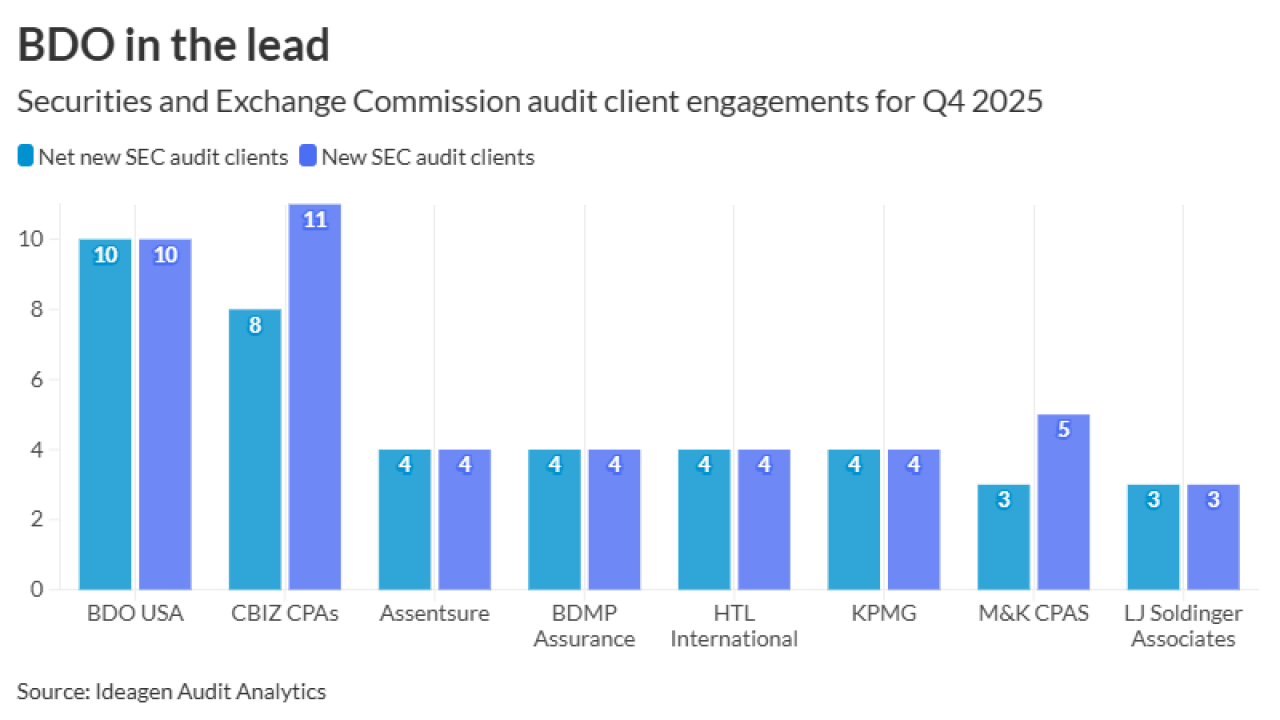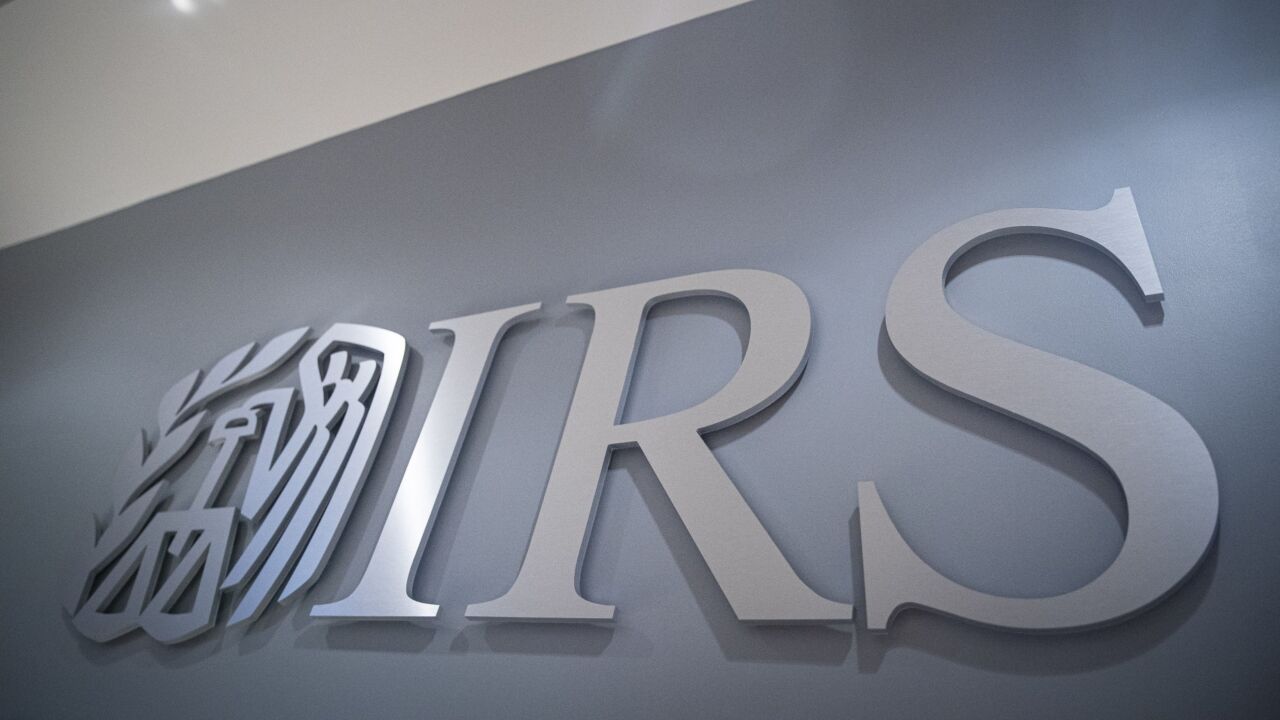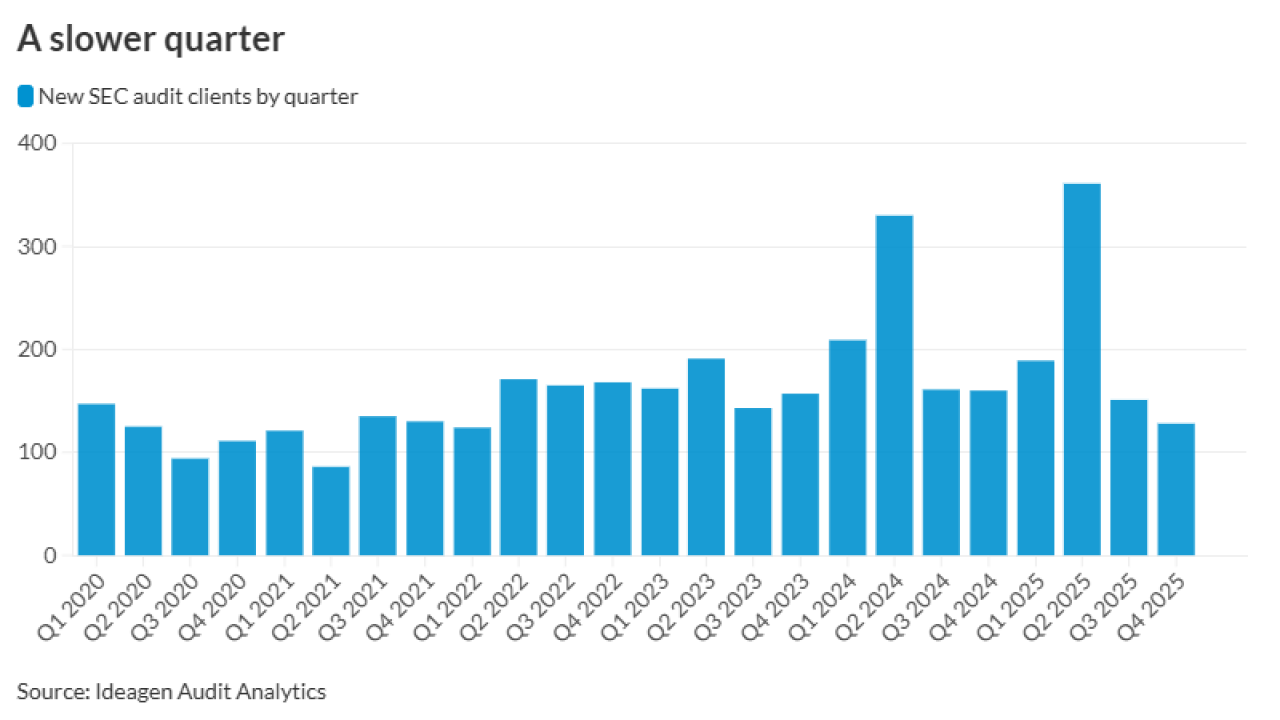In a bit of good news despite a still-uncertain economy, compensation for accounting professionals is expected to rise some 3.5 percent overall in 2012, continuing its upward momentum from the prior year.
According to this year's edition of financial staffing concern Robert Half International's annual guide to compensation in accounting and finance, experienced staffers, particularly those at the manager and senior levels, will be the beneficiaries of higher sector demand.
"Overall, the salary trend is that we are seeing the development of two different job markets," explained Brett Good, senior district president at Robert Half. "A job market for highly skilled professional employees and another segment for those that don't fall into that bucket. In the accounting and financial world, demand is higher in that area, and unemployment rates [in the profession] are usually 50 to 60 percent lower than general unemployment numbers. The result is that we are seeing a higher demand and salaries beginning to go up."
On a top-down basis within accounting firms, the bell-shaped distribution for salary increases from 2011 will remain - tax service managers, senior tax accountants and senior auditors should anticipate the biggest paycheck bumps, while not surprisingly, entry-level staff will see the lowest increase, lagging slightly behind those with a one-to-three-year level of experience. Salaries for senior managers/directors in both tax and audit/assurance services are typically slightly behind the increase at the senior and management level, but slightly higher than those levels in management services.
Large firms generating more than $250 million in revenues are on track to provide the largest 2012 salary increases in the categories of tax services, as well as audit, assurance, and management services.
Small firms (those with up to $25 million in revenue) are also projected to offer larger percentage increases in all categories, and especially in tax services. In a shift from last year, midsized firms (those with between $25 million to $250 million in revenue) no longer lead the pack in pay bumps, with increases just behind the other firm sizes. Like small firms, the midsized category's biggest percentage changes come in tax services, and especially in the manager and one-to-three-year experience roles.
SKILLS AND PERKS
The outlook is slightly brighter for skilled employees, who are in greater demand in a tightening market.
Financial analysts, for example, should see a 4.2 percent salary increase next year, while compensation for senior staff accountants is projected to increase 3.9 percent.
"People with those types of skill sets are finding a volume of job offers," said Good. "For people seriously looking for a new opportunity, they are reaching into the market and it's not uncommon for a candidate to receive high counter-offers to stay at their current employment or the opportunity to receive multiple job offers."
This is a break from the trend of even two years ago, Good explained. "Someone gainfully employed in a tough market, even with other opportunities to consider, typically didn't. They had their bird in the hand worth two in the bush and they were going to hunker down. Now, candidates are more open and responsive to hearing about and seeking new opportunities."
For their part, companies are offering myriad perks to attract and retain those professionals. According to a Robert Half survey of 1,400 CFOs, subsidized training and education is the most popular incentive, offered by 29 percent of respondents. Flexible work hours/telecommuting and mentoring programs were tied as the second-most-provided perks, by 24 percent of CFOs, with matching gift programs at 13 percent.
Even with these benefits, however, firms are finding it more difficult to attract top talent. In Robert Half's Professional Employment Report, 68 percent of surveyed CFOs reported challenges in finding skilled financial professionals, an increase of nine points from the fourth-quarter survey and 27 from the third quarter.
While this is good news for skilled talent eyeing bigger paychecks, companies still in recovery mode remain vulnerable.
"With the uncertainty in the market, companies are still hesitant to aggressively grow their infrastructure," said Good. "Now companies doing so are at risk for losing a lot of intellectual capital. They're thinking, 'How do we retain the talent we have? We need to go out and find new staff to come on board,' and expectations are beginning to increase."
Within the three most in-demand finance positions - financial analysts, senior and staff accountants, and business system analysts - expectations have become more specific. According to the employment report, employers seek financial analysts with "functional expertise and outstanding interpersonal skills" and staff and senior accountants with CPA licensure and public accounting experience. And, as firms embrace technological advancements, business analysts with both finance and IT experience are among the most valued job candidates.
According to Good, companies are thinking: "'Where can we find new revenue streams and how do we preserve or maximize existing revenue streams?' With IT and financial professionals, everyone has been feeling an increasing amount of money and resources put into new CRM and ERP systems to mine transactions to achieve those goals, and bringing in professionals with the skill sets to create or interpret that data."
THE WIDER MARKET
Even accountants who possess these skills and designations should not complacently expect the bullish employment market of years past, Good advised.
"It's not like if I quit my job, I would find one tomorrow," he said. "It's still a challenging market, improving on a sequential basis quarter over quarter, including in wages. But you should not infer by any stretch of the imagination that it is a bull market."
Still, a slight lift to the overall job market is apparent, strengthening all facets of accounting firms.
"It's not uncommon for administrative positions to have been on a salary freeze and now as organizations perform better in their public results, they now increase salaries more frequently," he said.
Of the 4,000 U.S. executives surveyed across multiple industries, 10 percent plan to add professional staff in the first quarter of 2012 - up from 7 percent and 4 percent in the fourth and third quarters of 2011, respectively. Meanwhile, 40 percent said they were "very confident" in their organization's growth potential in that quarter and 47 percent claimed to be "somewhat confident."
"Something I am seeing anecdotally is that as organizations improve their performance, they are beginning to find their volume of transactions increasing," said Good. "It's a positive sign within the staff positions that with this increased demand, they are bringing in at the staff level. [Companies] don't do that unless transaction volume is increasing to support that."
Robert Half's 2012 Salary Guide is available as a PDF online at www.roberthalffinance.com/salarycenter, or you can order hard copies by calling (800) 474-4253.





